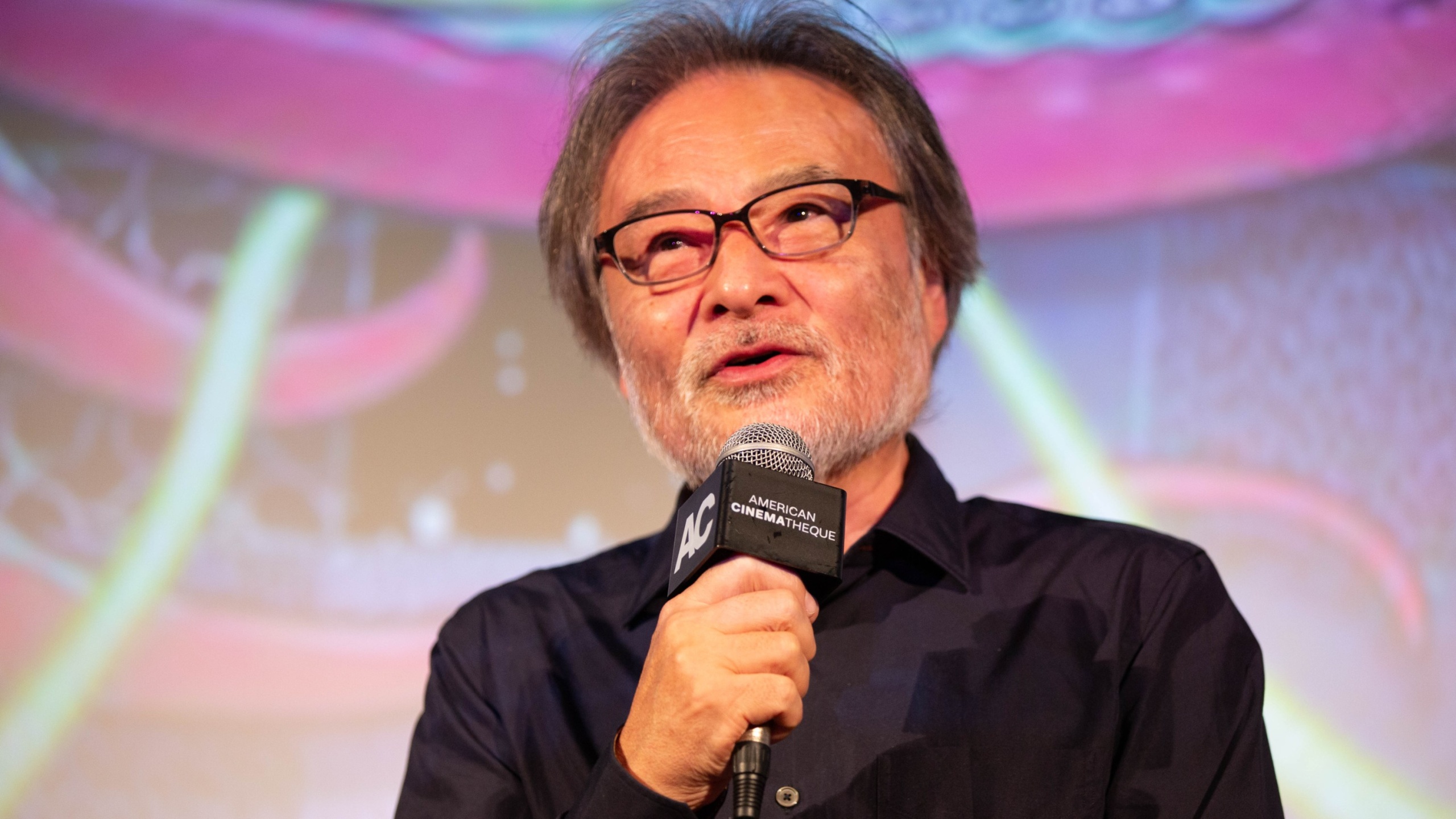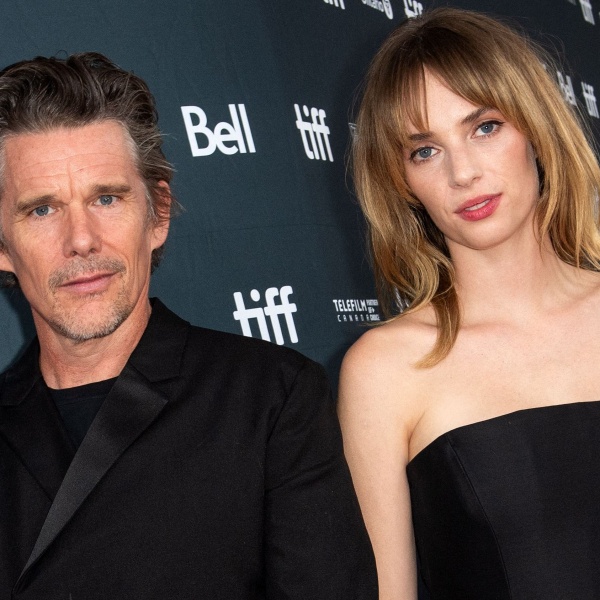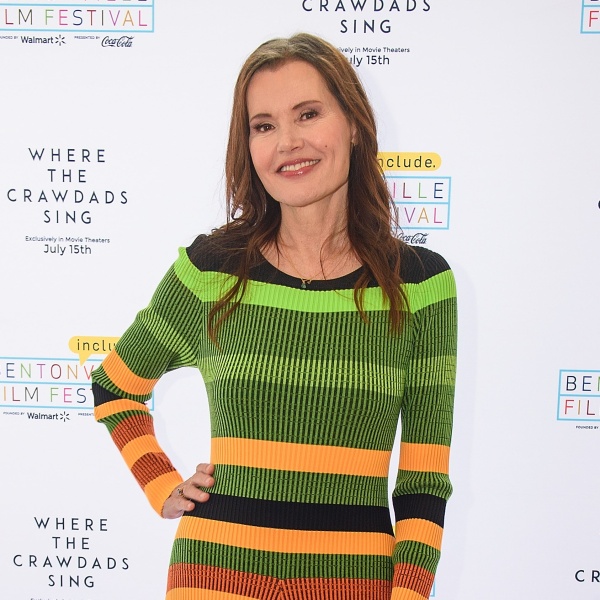Kiyoshi Kurosawa has spent the fall festival season dazzling critics with “Cloud,” a thriller that follows the petty feuds of a sleazy online reseller to their bloody ends in a brilliant send-up of the internet’s unique ability to connect people who would never otherwise realize that they hate each other. The film earned rave reviews after its Venice premiere on its way to being submitted as Japan’s official entry to the Academy Awards. It has received the kind of response that would be a dream come true for any filmmaker — and it’s just one of three new films that Kurosawa released this year.
The “Cure” director is basking in the aftermath of a creative hot streak. Having also unveiled “Serpent’s Path,” his gender-swapped French-language remake of his 1998 thriller of the same name and the 45-minute horror film “Chime,” he’s currently in the midst of a globetrotting festival odyssey to promote all three. This week saw him make his first trip to Los Angeles in 15 years for Beyond Fest and an American Cinematheque retrospective, which paired screenings of all three new films with four of his classic works. During a brief lull in the excitement, the Japanese auteur sat down with IndieWire for a conversation conducted through an interpreter. How is he holding up after shooting three movies in a single year?
“First and foremost, it was fun,” Kurosawa said with a laugh. “It was probably my busiest year in my entire career. Back in the late ’90s, I remember it was lower-budget stuff, but I was shooting five projects in a year, so I knew that three in a year is possible. It was actually a good experience.”
The “Serpent’s Path” remake was Kurosawa’s second French film, following his 2016 horror film “Daguerrotype.” He explained that he was approached by French producers about remaking any one of his own works, and immediately singled out the thriller as an opportunity to put his own stamp on a film that he didn’t originally write. While he joked that the process of directing in a foreign language is still “not easy,” he relishes the opportunity to assemble a stable of repeat French collaborators by bringing back most of the crew from “Daguerrotype.”
“[I chose it] because the story is good, the script is solid, but it’s not mine,” he said of the project. “The writer is Takahashi Hiroshi, who is famous for writing ‘Ring.’ It’s wonderful, but I wanted to make it truly mine, and take his imprint out of it and place my complete view on it.”

With “Cloud,” Kurosawa applied his unique knack for capturing alienation to an action flick set in the world of online shopping. He explained that he became curious about the much-maligned practices of selling (often fake) goods on the internet before realizing that it was a window into many of the larger forces shaping our current social ills.
“I actually had a friend who was a reseller on the internet, so I just got interested and asked him how it’s done. When it comes to reselling, I’m not sure how it is in the U.S., but in Japan it’s not seen as that legit. It has this impression that it can be schemey. It’s a barely-legal vibe,” he said, though he added that he doesn’t always agree with the sleazy characterization of the practice. In his eyes, it’s an inevitable byproduct of a market-oriented economic system. “The idea of buy it cheap, sell it high. It’s capitalism. It’s what companies do anyway. I think it’s also a symbol of where we’re at in the 21st century with the internet. This is a path to making a living.”
“Cloud” might be one of the timeliest movies about the malevolent influences of the internet in recent memory, but it’s not the first time Kurosawa has tackled the subject. His 2001 horror film “Pulse” applied a supernatural lens to the subject, but decades of watching the technology mature helped the auteur offer a more precise portrayal of it.
“‘Pulse’ was over 20 years ago now, and at that time the internet was booming and exploding, but no one really knew the answer to ‘where is the internet connected to?’” he said. “Now we’re in 2024 and the internet is an everyday tool now, and it can be used for good and bad. Everyone understands that now.”
If anything, Kurosawa appears less interested in exploring the internet itself than the age-old flaws in human nature that it was destined to amplify.
“I think the issue isn’t that the internet makes humans isolated and lonely, but it’s actually humans who are isolated and lonely who seek out the internet,” he said. “If you feel lonely and isolated, it’s in your heart. It takes up a little space in your heart. I think that the internet has this power to collect those, those little pieces of isolation and loneliness, and then just make it expand.”
He continued, “If this was applied to a good thing and it’s amplified through the internet, it’s great. If it’s a negative thing, I think that these collections of feeling isolated, and then that getting amplified in the internet, it does pose a danger, I think, and it poses a constant danger. In the case of ‘Cloud,’ it’s a collection of not only negative feelings, but these multiple people, a collection of multiple bad people.”
While much of the buzz surrounding Kurosawa’s Beyond Fest appearance centered around “Cloud,” the screening series allowed cinephiles to place his career in a larger perspective. After first emerging on the world stage in the 1990s as a horror director, he has spent much of the 21st century floating between genres. “Cloud” saw him dip his toe into the action space to great success, and he’s eager to see which genre his obsession with film history might lead him to next.
“Genre film is film to me,” he said. “To me a genre movie is a movie. A producer might come to me with an idea or a script, or I might say, ‘I want to make this kind of film.’ What I’m always very conscious about is, whatever film I’m making, how does it fit into overall film history. I can make something from nothing, but there’s usually a desire. For me, the process of filmmaking is to discover.”
“Cloud” is currently seeking U.S. distribution.






